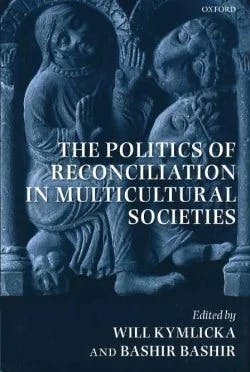The Politics of Reconciliation in Multicultural Societies
...an original and promising research agenda which, in line with the editors' intention, should inspire scholars to further research into the relationship between reconciliation and democratic inclusion.
Ulrike Theuerkauf, Nations and Nationalism
Most countries around the world exhibit a long history of exclusion and discrimination directed against ethnic, racial, national, religious, or ideological groups. The underlying justifications for these forms of exclusion have been increasingly discredited by the post-war human rights revolution, decolonization, and by contemporary norms of liberal-democratic constitutionalism, with their commitment to equal rights and non-discrimination. However, even as these older practices and ideologies of exclusion are discredited and repudiated, they continue to have enduring effects. The legacies of exclusion can still be seen in a wide range of social attitudes, cultural practices, economic and demographic patterns, and institutional rules that obstruct efforts to build genuinely inclusive societies of equal citizens. Finding ways to overcome this problem is a major challenge facing virtually every society around the world. This book focuses on two parallel intellectual and political movements that have arisen to address this challenge: the 'politics of reconciliation', with its focus on reparations, truth-telling and healing amongst former adversaries, and the 'politics of difference', with its focus on the recognition and empowerment of minorities in multicultural societies. Both the politics of reconciliation and the politics of difference are having a profound impact on the theory and practice of democracy around the world, but remarkably little has been written about the relationship between them. This book aims to fill that gap. Drawing on both theoretical analysis and case studies from around the world, the authors explore how the politics of reconciliation and the politics of difference often interact in mutually supportive ways, as reconciliation leads to more multicultural conceptions of citizenship. But there are also important ways in which the two may compete in their aims and methods. This book is the first attempt to systematically explore these areas of potential convergence and divergence.
In addition to other qualities of this excellent volume, the real beauty of this book is its composite diversity of perspectives... I strongly recommend the book to all those interested in issues of politics of reconciliation and more broadly in questions of diversity, democracy, and resolution of conflicts in multicultural societies.
Dragan Stanievski, Administrative Theory & Praxis
Table of Contents
- Will Kymlicka and Bashir Bashir, "Introduction"
- Lawrie Balfour, "Against Reconciliation: Agonistic Democracy and the Politics of Reparations for Slavery"
- Paul Muldoon, "The Very Basis of Civility: On Agonism and Reconciliation"
- Bashir Bashir, "Reconciling Historically Excluded Social Groups: Deliberative Democracy and the Politics of Reconciliation"
- Jonathan VanAntwerpen, "Secularizing Reconciliation"
- Nadim Rouhana, "Reconciling History and Citizenship in Israel: the Politics of Historical Denial and Inclusive Citizenship?"
- Sonali Thakkar, "The Politics of Ethnographic Display: History and Diversity in the Museum"
- Eric Yamamoto, "Legislating Reconciliation"
- Ruth Rubio-Marin, "Collective Reparations and Differentiated Citizenship"
- Mark Walters, "Reconciliation and Indigenous Peoples"
